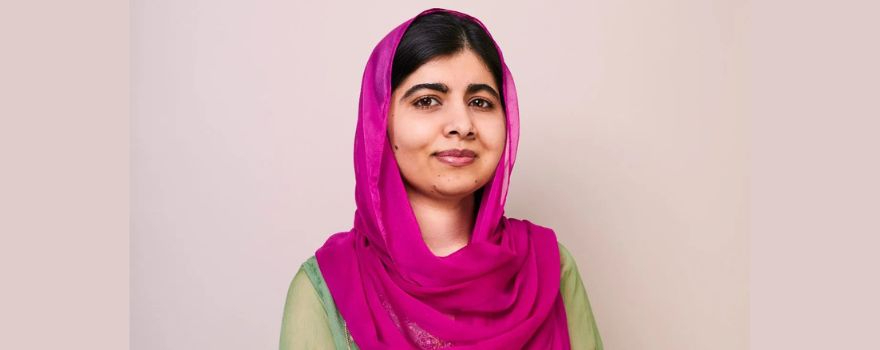"We Cannot Let This Happen": Malala Yousafzai’s Impassioned Plea for Girls' Education
18 JAN 2025
Malala Yousafzai, the youngest Nobel laureate and a global advocate for girls’ education, delivered a powerful call to action at an international summit in Islamabad, urging Muslim leaders to confront the Taliban’s repressive policies against women and girls in Afghanistan.

Malala Yousafzai, the youngest Nobel laureate and a global advocate for girls’ education, delivered a powerful call to action at an international summit in Islamabad, urging Muslim leaders to confront the Taliban’s repressive policies against women and girls in Afghanistan. Addressing the conference organized by the Organization of Islamic Cooperation (OIC), the Pakistan government, and the Muslim World League, Malala did not hold back in her criticism, declaring that “the Taliban do not see women as human beings.”
The summit brought together ministers, scholars, and activists from Muslim-majority countries, yet the absence of the Taliban—despite being invited—was a stark reminder of their unwillingness to engage in meaningful dialogue. Malala’s speech was not just an indictment of the Taliban’s policies but a rallying cry for the global Muslim community to stand against oppression and uphold the fundamental rights of women and girls.
For Malala, returning to Pakistan for this summit carried profound significance. At 15, she survived a near-fatal attack by the Pakistan Taliban for her advocacy for girls' education. She has since become a symbol of resilience and hope, visiting her home country only a handful of times since the 2012 attack. Standing before the audience in Islamabad, she expressed her joy at being back but lamented the worsening plight of Afghan women and girls.
Under the Taliban’s rule, Afghanistan has become the only country in the world where girls are completely banned from secondary and higher education. Over 1.5 million girls have been systematically deprived of their right to learn, with promises of reform repeatedly broken. The Taliban’s justification, rooted in their interpretation of Islamic values, has drawn widespread condemnation. “There is nothing Islamic about denying education to girls,” Malala asserted, dismantling their claims and highlighting the disconnect between their actions and the true teachings of Islam.


Malala also shed light on the broader threats to girls’ education worldwide, citing crises in Yemen, Sudan, and Gaza as examples of how conflicts and instability are eroding the futures of millions. In Gaza, she pointed out, the education system has been decimated, leaving countless children without access to learning. She urged world leaders to “call out the worst violations” of girls’ rights and to act decisively in protecting their futures.
Her message was clear: the denial of education is not just a violation of human rights but a theft of potential and progress. Malala warned of the long-term consequences of barring women from education, describing it as a direct threat to economic development, societal progress, and the overall stability of nations. She called on Muslim leaders to take the lead in opposing these oppressive policies, challenging them to ensure that no girl is left behind.
The stakes could not be higher. The future of millions of girls hangs in the balance, and Malala’s impassioned plea is a reminder that this fight is far from over. “The entire future of girls is being stolen,” she said. “We cannot let this happen. It is our collective responsibility to ensure that every girl, in every corner of the world, has access to education.”
Her words resonate as a call to action, urging the global community to unite in defense of education and human rights. As she stood on the stage in Islamabad, Malala embodied the courage and determination needed to confront injustice, reminding the world that the power to create change lies in our hands.





















